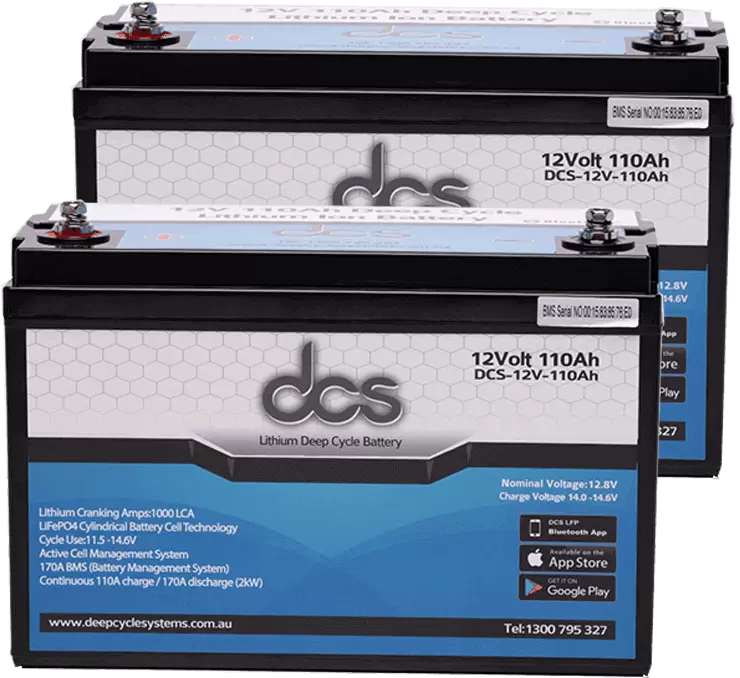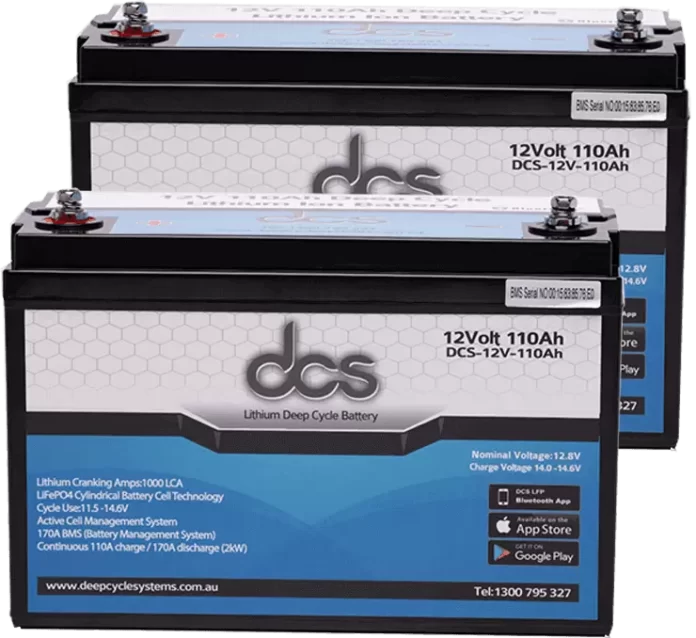The renewable energy revolution is well and truly upon us. And at the forefront of this revolution is the remarkable lithium-ion solar battery. Lithium-ion solar batteries have revolutionized how we think about clean, renewable energy and its potential to power our lives. In this blog post, we’ll look at how the lithium ion solar battery changes the face of renewable energy.
What Is A Lithium-Ion Battery?
A lithium-ion battery is a rechargeable power source widely used in modern electronics. It stores energy by moving lithium ions between its positive (cathode) and negative (anode) electrodes. These batteries offer high energy density, providing extended device usage without being bulky. They are prevalent in smartphones, laptops, electric vehicles, and more due to their efficiency, low self-discharge rate, and lightweight design.
However, they require protection circuits to prevent overcharging and discharging, which can lead to safety concerns. Their role in shaping portable technology and sustainable energy solutions has made them a pivotal component in our daily lives and the shift towards cleaner energy systems.
Why Choose Lithium-Ion Batteries For Solar Applications?
Lithium-ion batteries are rapidly becoming the go-to choice for solar applications, and it’s not hard to see why. These batteries offer numerous advantages that make them ideal for storing energy generated from solar panels. First and foremost, lithium-ion batteries provide a higher energy density than other battery types. This means they can store more energy in a smaller size, making them perfect for solar installations where space may be limited.
In addition to their compact size, lithium-ion batteries have a longer lifespan than traditional lead-acid batteries. This means they can provide power for longer without needing to be replaced, saving you money in the long run. Furthermore, lithium-ion batteries offer a more consistent and reliable power supply. They can provide a steady flow of electricity, ensuring you have a stable energy source for your solar-powered devices.
Advantages of Lithium-Ion Car Batteries over Traditional Lead-Acid Batteries
Lithium-ion car batteries are quickly gaining popularity over traditional lead-acid batteries, and it’s not hard to see why. These advanced batteries offer a range of advantages that make them the superior choice for powering our vehicles. Firstly, lithium-ion car batteries have a significantly longer lifespan than lead-acid batteries. This means that you won’t have to replace your car battery as frequently, saving you time and money in the long run. Lithium-ion batteries are much lighter and more compact than their lead-acid counterparts.
This allows for more efficient use of space within the car and improves overall fuel efficiency by reducing the vehicle’s weight. Furthermore, lithium-ion car batteries are known for holding a charge for longer periods. This means that even if your vehicle is not used for an extended period, the battery will still maintain its charge. With lead-acid batteries, you would often have to use a trickle charger to keep them powered up during periods of inactivity.
Key Features of Lithium Ion Car Battery
Lithium-ion car batteries have revolutionized the automotive industry with their advanced technology. Here are some key features that make them stand out:
High Energy Density:
Lithium ion car battery boast a remarkable energy density, meaning they can store a significant amount of energy in a compact size. This enables electric vehicles to travel longer distances on a single charge than traditional lead-acid batteries.
Fast Charging Capability:
One of the prominent advantages of lithium-ion car batteries is their fast charging capability. They can be charged a significant percentage relatively quickly, enhancing convenience and reducing downtime.
Longer Lifespan:
Lithium-ion batteries typically have a longer lifespan than traditional lead-acid batteries. With proper management and maintenance, they can endure hundreds of charge and discharge cycles, contributing to the overall cost-effectiveness of electric vehicles.
Reduced Weight:
Lithium-ion batteries are considerably lighter than their lead-acid counterparts, contributing to improved energy efficiency and overall vehicle performance. The reduced weight helps electric vehicles achieve better acceleration and handling.
Regenerative Braking Compatibility:
Many lithium-ion car batteries are designed to support regenerative braking systems. These systems capture and store energy generated during braking, enhancing the battery’s efficiency and extending its range.
The Efficiency and Longevity of Lithium-Ion Solar Batteries
Lithium-ion solar batteries are not only revolutionizing renewable energy, but they are also incredibly efficient and long-lasting. These batteries have an impressive energy density, allowing them to store significant energy in a compact space. This means you can generate more power from your solar panels and store it efficiently for later use.
In terms of longevity, lithium-ion solar batteries are built to last. They have a much longer lifespan than traditional lead-acid batteries, ensuring you can rely on them for years to come. This durability is especially important for solar energy systems, as you want your battery to withstand the test of time and continue providing clean energy for your needs.
Lithium-ion batteries maintain their efficiency over time, retaining their charging and discharging capabilities as quickly as other batteries. This ensures that you can continue to harness the full power of your solar energy system for an extended period without any significant decline in performance.
Considerations before Purchasing a Lithium-Ion Solar Battery
If you’re considering purchasing a lithium-ion solar battery, there are a few important considerations to remember. Firstly, you’ll want to assess your energy needs and determine the battery capacity required to meet those needs. Consider factors such as the size of your solar panel system and the amount of electricity you consume daily.
Another consideration is the lifespan of the battery. While lithium-ion batteries generally have a longer lifespan than lead-acid batteries, choosing a battery with a warranty that matches your expectations is still important. Look for batteries with a reputable brand and positive customer reviews to ensure you invest in a high-quality product.
Additionally, it’s crucial to consider the safety features of the battery. Look for batteries with built-in protection against overcharging, overheating, and short circuits. This will help prevent any potential accidents and ensure the battery’s longevity. Lastly, consider the installation process and compatibility with your existing solar panel system. Consider consulting with a professional to ensure proper installation and address compatibility issues.
Advantages of Switching To a Lithium Starting Battery
Switching to lithium starting battery is a smart choice if you want to upgrade your vehicle’s battery. These advanced batteries offer a range of advantages that make them superior to traditional lead-acid batteries. First and foremost, lithium starting batteries have a significantly longer lifespan than lead-acid batteries. This means you won’t have to worry about replacing your battery as frequently, saving you time and money in the long run.
Lithium batteries are much lighter and more compact, improving fuel efficiency and reducing your vehicle’s overall weight. Another advantage of lithium starting batteries is their ability to hold a charge for longer. This means that even if your vehicle is not used for an extended period, the battery will still maintain its charge. With lead-acid batteries, you would often have to use a trickle charger to keep them powered up during periods of inactivity.
Tips for Proper Installation and Maintenance of Lithium-Ion Solar Batteries
Installing and maintaining lithium-ion solar batteries is crucial for ensuring their optimal performance and longevity. Here are some helpful tips to follow:
Read The Manufacturer’s Instructions:
Before starting the installation process, carefully read and understand the manufacturer’s instructions. This will ensure that you follow the correct procedures and avoid any potential damage to the battery.
Proper Mounting:
When installing the battery, ensure it is securely mounted in a well-ventilated area away from direct sunlight and extreme temperatures. Avoid placing the battery near flammable materials or areas prone to water damage.
Check The Connections:
Ensure all connections between the battery, solar panels, and any other components are tight and secure. Loose connections can lead to poor performance or even damage to the battery.
Regular Maintenance:
Periodically check the battery for any signs of damage, such as bulging or leaking. Clean the battery terminals with a mild baking soda and water solution to remove any corrosion. Additionally, monitor the battery’s charge level and recharge it to prevent over-discharge.
Safety Precautions:
When working with lithium-ion batteries, it’s important to take proper safety precautions. Wear protective gloves and goggles, and avoid touching the terminals with bare hands. Also, dispose of old or damaged batteries according to local regulations.
Future of Lithium-Ion Solar Batteries and Their Impact on the Energy Sector
The future of lithium-ion solar batteries holds great promise for revolutionizing the energy sector. These advanced batteries are poised to enhance renewable energy storage, enabling efficient harnessing and distribution of solar power. Their high energy density, rapid charging capabilities, and extended lifespans will address the intermittency challenge of solar energy, enabling constant power availability.
Lithium-ion solar batteries will reduce reliance on fossil fuels and curb carbon emissions by facilitating the integration of renewable sources into the grid. This transformative technology is poised to accelerate the global shift toward cleaner and more sustainable energy solutions, fundamentally reshaping how we generate and consume power.
FAQ’s
1. Are lithium-ion solar batteries safe to use?
Absolutely! Lithium-ion batteries have built-in safety features to protect against overcharging, overheating, and short circuits. Just make sure to follow the manufacturer’s instructions and handle them with care.
2. How long do lithium ion solar battery last?
Lithium ion solar battery have a longer lifespan compared to traditional lead-acid batteries. Depending on usage and maintenance, they can typically last 10-15 years.
3. Can I use a lithium-ion solar battery for my whole house?
Yes, you can! Lithium-ion batteries can be integrated into residential solar systems to store and supply your house’s power.
4. Can I charge a lithium-ion solar battery with my existing solar panels?
Absolutely! Lithium-ion batteries are compatible with most solar panel systems, making it easy to upgrade your current setup.
5. How do I maintain a lithium-ion solar battery?
Maintenance is minimal! Just monitor the battery’s charge level and recharge when needed. Additionally, inspect for any damage and clean the terminals if necessary.
Conclusion
In conclusion, the lithium-ion solar battery is a game-changer in the renewable energy sector. Its advanced technology, high energy density, and longer lifespan make it ideal for storing energy generated from solar panels. Whether powering our homes or vehicles, lithium-ion batteries offer numerous advantages over traditional lead-acid batteries. They provide a reliable power supply, fast charging capabilities, and improved efficiency. As we move towards a cleaner and more sustainable future, lithium-ion solar batteries will continue to play a crucial role in revolutionizing how we generate and consume power.

